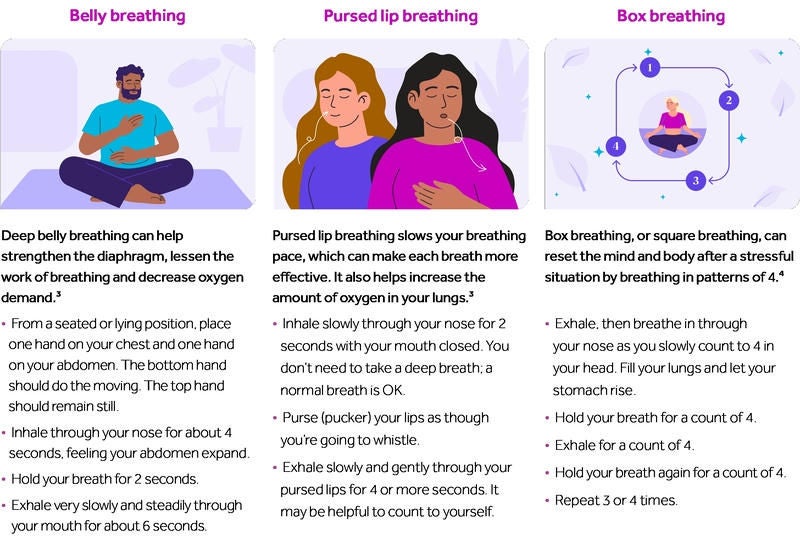Breathe deep for better mental health

Take a deep breath.
We instinctively do it several times each day. You take a big breath before you jump into things literally, like a pool, or figuratively, like a task that requires mental focus. We use a deep breath to clear our minds, signal the start of something new, or even to bring a moment of calm when it’s busy.
How deep breathing works
When you take a deep breath, you fill your lungs with oxygen and that stimulates your parasympathetic nervous system. The infusion of oxygen calms down your sympathetic nervous system’s “fight or flight” response and increases your “rest and digest” mode. This can increase your feelings of peace and calm.1 Deep, slow breathing is also shown to decrease muscle tension and may support improved mental health.2
There’s been a lot of attention on high-level athletes and top executives using breath work to get through their challenges and perform better. However, it’s not just for them. Some wellness, exercise and medical professionals hold the opinion that deep breathing practices can benefit many people. It costs nothing but a few minutes and may offer physical and mental health rewards.
Before you start any new exercise routine, talk to a doctor to make sure it’s safe.
The following breathing exercises are used in meditation, the practices of yoga, Pilates, tai chi and more. Find your favorite or just take a deep breath—it’s that easy.

This is not a lot of hot air. The simple act of deliberately catching your breath can lead you to a calmer, more restful and relaxed mental state.
1https://www.utoledo.edu/studentaffairs/counseling/anxietytoolbox/breathingandrelaxation.html
2https://pmc.ncbi.nlm.nih.gov/articles/PMC10013266/
3https://www.hopkinsmedicine.org/breathlessness-clinic/breathing-techniques
4https://health.clevelandclinic.org/box-breathing-benefits
Was this article helpful?
Don't wait! Unlock a healthy, happy new year, at no cost to you.
This content is not intended to be a substitute for professional medical advice, diagnosis or treatment. Always seek the advice of your physician or other qualified health provider with any questions you may have regarding a medical condition.
